Shock as spike in youngsters' drink and drug use is revealed - and the effect addiction has had on one Preston family
and live on Freeview channel 276
In the North West, 36 per cent of those asked aged between 16 and 25 said they had used an illegal drug in the past 12 months, one of the highest regional statistics in the country.
Issues of unemployment and isolation were identified as leading causes of problems.
Advertisement
Hide AdAdvertisement
Hide AdAlcohol use is also prevalent in the North West, with 64 per cent of young people asked saying that they had consumed alcohol in the past 12 months; one of the highest numbers in the UK.
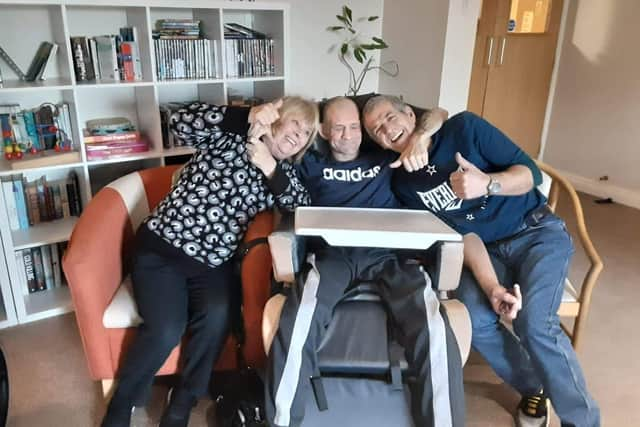

Charities and health groups say the figures are "extremely worrying" and that "economic and social conditions are prime for these statistics".
The Post spoke to one Preston family affected by drink and drug use. Their son Andrew Kenyon spent almost 30 years battling alcohol addiction, and illicit drug use contributed to his death aged 47.
They want young people to know about the consequences of alcohol and drug use, so that Andrew's death is not in vain.
Advertisement
Hide AdAdvertisement
Hide AdKey findings
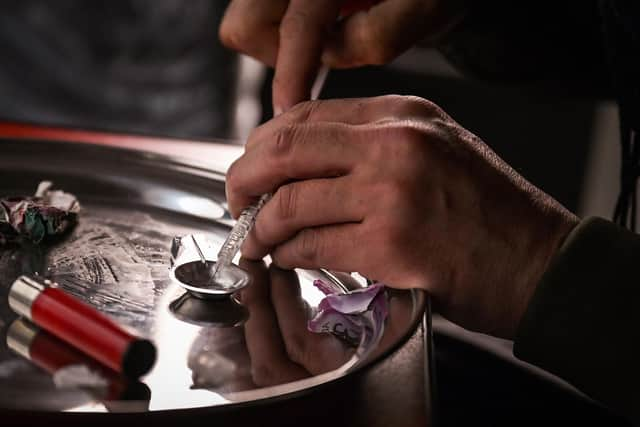

- 1 in 3 young people (33 per cent) have used an illegal drug in the past 12 months, which equates to around 2.6 million people. This is a 50 per cent increase compared to 22 per cent in 2021.
- 17 per cent of young people have used a class A drug within the past 12 months, equating to 1.3 million young people. This is much higher than the 11 per cent recorded in 2021.
- The frequency of substance use has also increased since 2021, when 16 per cent of young people used drugs at least once a week. In 2022 it is 23 per cent.
Why is this happening?
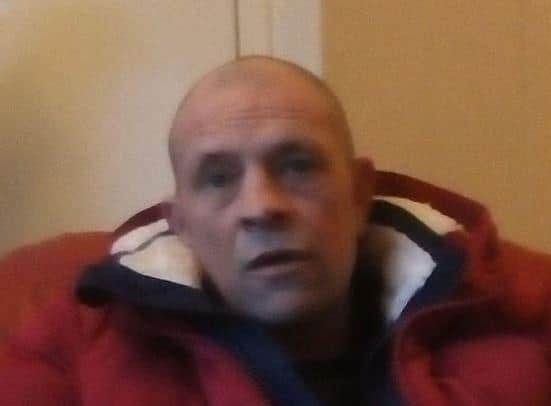

The Mix’s research shows that while fewer young people are currently using substances to have fun, there has been a sharp 75 per cent increase in using substances to escape problems, with 1 in 5 (21 per cent) doing so compared to 12 per cent in 2021.
Advertisement
Hide AdAdvertisement
Hide AdA similar number of young people use substances to help them cope with a mental health issue or emotional distress.
The proportion of young substance users taking substances as a habit almost trebled from five per cent in 2021 to 14 per cent in 2022. The Mix suggests that many more young people are forming addictions.
Peter Yarwood of Red Rose Recovery said: "We're seeing more young people enter fellowships (e.g. Alcoholics Anonymous, Narcotics Anonymous), and that's a new phenomenon.
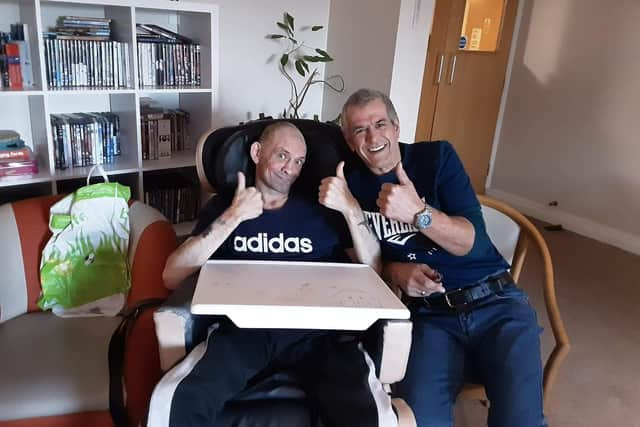

"All of the professionals I've been speaking to are all saying that when you continually cut services, the economic and social conditions are prime for these statistics."
Advertisement
Hide AdAdvertisement
Hide AdUse of anti-depressants
The Mix also reports that eight per cent of young people had used antidepressants outside of their doctor’s prescription within 30 days before the survey. This equates to over 634,000 young people aged 16 to 25 across the UK.
This rises to 12 per cent among young people who have used antidepressants outside of prescription over the last 12 months.While some ‘self-prescribe’ antidepressants, others adjust dosing prescribed by their doctor, with some young people showing signs of addiction to antidepressants.
Researchers suggest there is a lack of education around the dangers of taking antidepressants without consulting a doctor, as well as a worrying level of dependency.
Who is most affected?
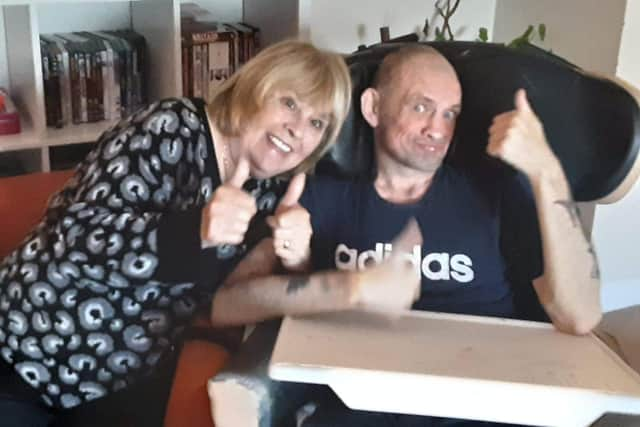

The study showed that young gay, lesbian and bisexual people are the most likely to engage in drug use (36 per cent vs 32 per cent of young heterosexuals) and the most likely to experience mental health challenges with this.
Advertisement
Hide AdAdvertisement
Hide AdIt was also found that gay or lesbian (16 per cent) or bisexual (11 per cent) young people are also far more likely to use antidepressants outside of prescription than heterosexuals (6 per cent).Employment status was also a strong factor, with unemployed substance users more likely to use substances to help them cope with mental health issues or emotional distress (24 per cent), than those who were employed (19 per cent) or in education (15 per cent), indicating that financial problems and a lack of structure and routine could be contributing factors to substance use.
Support
Only a quarter (28 per cent) of substance users who have experienced challenges with substance use accessed any support or services, meaning there could be more than 2.2 million young people who had experienced challenges but did not access any support.
More than two in five young people believe that there is not enough support available to help young people with concerns about drug or alcohol use, which may be why some young people do not even try to find support.
"Extremely worrying”
Zoe Bailie, Deputy Chief executive at The Mix said: “The spike we have seen in the number of young people facing challenges with substance use in the past year is extremely worrying and we believe it’s also preventable.
Advertisement
Hide AdAdvertisement
Hide Ad"We urgently need to break the stigma attached to substance use to ensure no young person is afraid to reach out for help due to concerns about how they will be judged. We also need to do more to highlight the support that is available, ensuring that it’s accessible
before a young person becomes dependant on drugs as a way to cope with life’s problems.”
Case study
"We've been through hell", say Alison and Bill Broomfield, whose son Andrew Kenyon battled alcoholism for 30 years, and “dabbled” in drugs.
He died in May 2021 aged 47, partly in relation to having taken illicit drugs which caused a heart attack. This left him with a hypoxic brain injury which meant he had severe physical and cognitive disabilities and required round-the-clock, one-to-one care.
Advertisement
Hide AdAdvertisement
Hide Ad>>>Read more here about the lessons learned by the Royal Preston Hospital following Andrew’s death.
Alison and Bill say they are determined for people to know that those with alcohol and drug addictions are “not just bums on the streets”, but real people with families trying to help them.
They want to share their experiences in the hope it will help others facing the same problems.
How did it all begin?
Andrew, from Ingol, first started drinking aged 16, something Alison puts down to peer pressure.
When the “loving and thoughtful” teenager left school and got a job landscape gardening with dad Bill, the disposable income facilitated his drinking.
Advertisement
Hide AdAdvertisement
Hide AdBill, 66, said: “We said to him, Monday to Thursday you’re in at 10pm because you’re working in the morning. They were our ground rules, but he decided he’d be best getting his own flat in Ashton, which he did when he was 17 or 18.
"To me, that’s when the problems really started because he had a lot of money in his pocket, no commitments, a lot of time, and nobody to answer to."
Eventually Andrew stopped getting up for work and lost his job.
Bill and Alison say they were “naive” at this time to the issues of alcoholism, and that culture was different in the 1990s.
Advertisement
Hide AdAdvertisement
Hide AdThey said: “It was cool to be drinking, you’d see adverts on the TV all the time showing these glamorous Martini girls. And he was being a lad. All of his friends would be drinking too.
"And when you’re young, you don’t want to listen to what your parents are saying to you. This is the problem with young ones.”
Alison added: “A few times he’d come home and we’d work with him here, but then he’d go out, bump into someone who was drinking and couldn’t say no. Then he’d decide he was moving out again. For days we wouldn’t be able to get hold of him or know what was going on.
"But he was an adult and there was nothing I could do to stop him. You start breaking your heart, but there’s nothing you can do until they come back and ask for help.”
Advertisement
Hide AdAdvertisement
Hide AdBill added: “You can’t drag them into rehab, you can’t lock them in a room, it won’t work. They have to want to do it themselves. But that doesn’t stop you worrying all the time.
Alison, 72, said: “It puts years on you, it puts a strain on your marriage, on the whole family.”
How much was he drinking?
The couple say that Andrew drank cans of strong lager and cider from when he got up to when he went to sleep.
From a man who idolised his family and who was funny and entertaining, Alison said he became like “Jekyll and Hyde”, and their biggest fear was the police coming to the door to say he’d been found dead on a park bench.
Advertisement
Hide AdAdvertisement
Hide Ad"I called the Houses of Parliament”
When he was in his early 30’s the family first tried to get Andrew in rehab, but had no idea where to start.
Alison said: “There was no internet then, and we had no experience of dealing with alcoholism. But I fought like crazy for him to get some help. I phoned the House of Parliament, the doctors, anyone I could think of.”
Eventually, Andrew was taken into rehab, and throughout his life would have three more placements at different establishments. He would go for long periods of sobriety, until he would meet someone who was drinking and couldn’t resist temptation.
Alison and Bill say it was hard with alcohol consumption being “in Andrew’s face all the time” on his favourite soaps. They also said that the ready availability of alcohol in supermarkets and deliveries to doorsteps is a concern.
Advertisement
Hide AdAdvertisement
Hide AdAlison and Bill said: “For anyone out there with a teenager starting doing these things, keep an eye on them.
"Always be willing to talk, don’t close the door on them."
They added: “And for other people, don’t just think that they’re hopeless bums who won’t work and have no family. They are loved, the families are trying.”
Help
If you need support for issues relating to substance misuse, click here for NHS help.
Alternatively, contact The Mix on themix.org.uk.
"